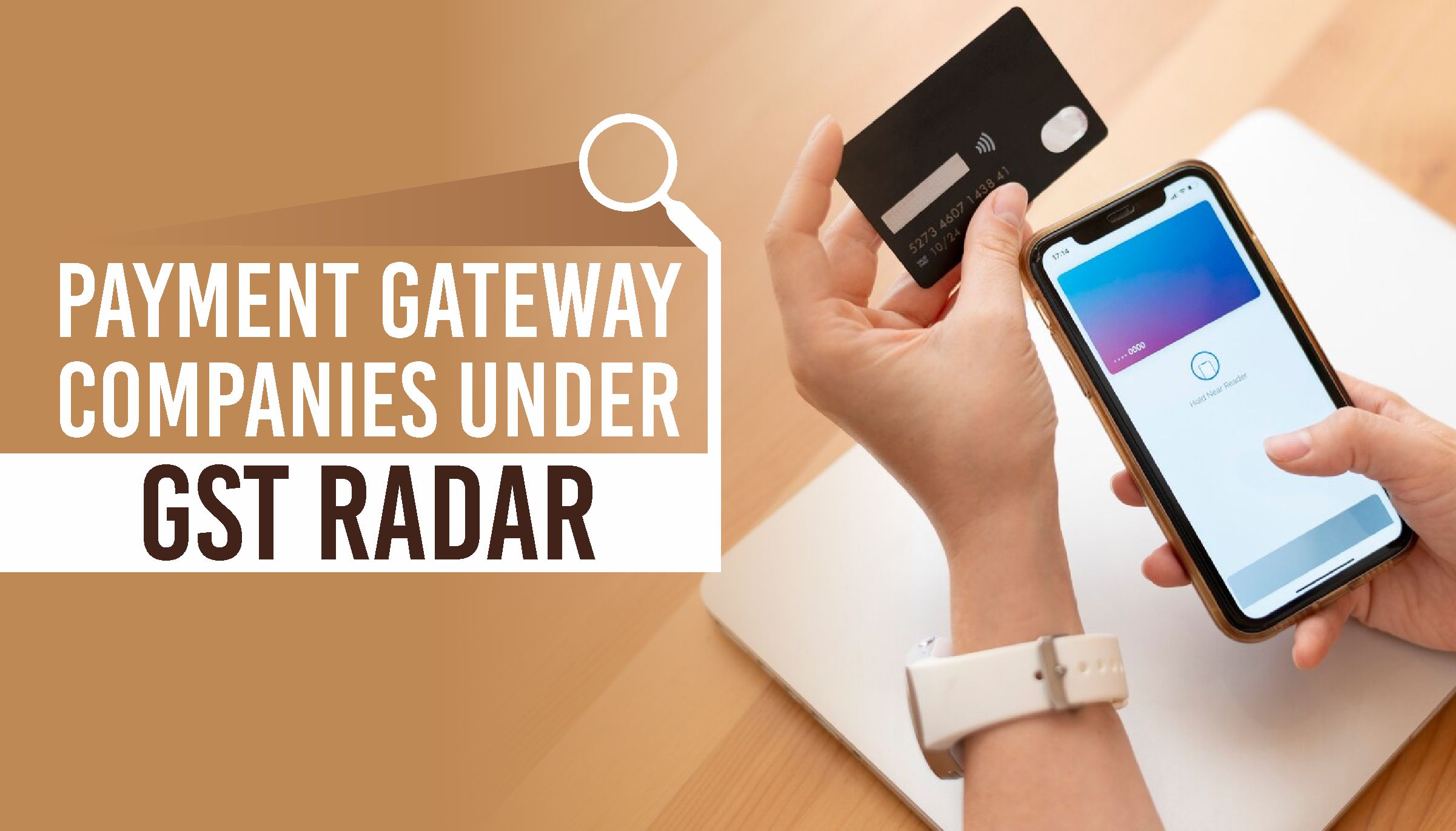Payment Gateway Companies Under GST Radar

India’s digital payment industry has witnessed significant growth, with more than 80% of transactions being valued at less than Rs 2,000. Since demonetisation in 2016, payment aggregators have not charged GST on these small-value transactions, adhering to a government notification issued during the pre-GST era. This notification exempted services provided by acquiring banks from service tax on transactions below Rs 2,000, and the industry interpreted it to mean payment companies were also exempt.
However, with the introduction of the Goods and Services Tax (GST) in 2017, this practice has come under scrutiny. Tax authorities are now demanding that payment aggregators retroactively pay GST on these transactions, beginning from the fiscal year 2017-18. This has created uncertainty for payment processors like BillDesk and CCAvenue, which are now receiving tax notices regarding unpaid GST on transactions under Rs 2,000.
GST Notices and the Demand for Retroactive Taxes
Large payment processors, including BillDesk and CCAvenue, have received notices from GST authorities requiring them to pay GST on the service fees they charged merchants for transactions under Rs 2,000. These notices represent a significant shift for the payment industry, which has so far not collected GST on these small-value transactions, following earlier government norms.
The tax authorities’ demands have sparked concerns across the industry, as many payment companies process billions of transactions annually. If these companies are required to pay GST retroactively for the past several years, it could result in claims worth hundreds of crores. Other major players in the industry, including Pine Labs, Paytm, Razorpay, and Cashfree, could also face similar tax notices, given the scale of transactions in this segment.
Collecting GST from Merchants Retroactively
Typically, GST is collected from merchants at the time of payment processing. However, payment companies had not been charging GST on transactions below Rs 2,000, in line with previous government guidelines. Now, if tax authorities insist on retrospective tax collection, payment aggregators will face the difficult task of recovering taxes from merchants for the past several years.
This could pose a significant challenge for both payment companies and merchants, particularly small businesses that have benefited from the low-cost digital payment system. The process of recovering unpaid taxes from merchants could strain relationships and create financial instability, especially for smaller players in the ecosystem. Additionally, this may erode the confidence of merchants who have been integral to India’s growing digital payments.
Government Guidelines from the Demonetisation Era
The issue stems from a government notification issued on December 8, 2016, during the demonetisation period. The notification exempted services provided by acquiring banks from service tax on transactions below Rs 2,000 conducted through debit and credit cards. Payment aggregators interpreted this exemption to extend to their services as well and continued the practice of not charging GST after the introduction of the new tax regime in 2017.
While the notification was meant for the pre-GST service-tax era, payment companies assumed that the exemption applied under the new GST regime as well. However, with no explicit relief granted after the imposition of GST, the tax authorities now argue that the industry should have been collecting taxes on these transactions all along.
The Industry’s Response
Payment companies and industry bodies have reached out to relevant authorities, seeking clarification on the tax demands. The industry has been instrumental in promoting the government’s Digital India initiative by enabling small merchants to adopt digital payments. The fear is that imposing retrospective taxes could disrupt the progress made in digital financial inclusion and create uncertainty in the payments ecosystem.
The upcoming GST Council meeting is expected to provide a definitive answer on whether payment companies will be required to collect GST on sub-Rs 2,000 transactions going forward. A decision to retrospectively charge GST from 2017 would create significant challenges for both payment aggregators and merchants.
A Pivotal Moment for Digital Payments in India
The GST Council’s decision on this issue will have far-reaching implications for India’s digital payments industry. Retroactive GST demands could create financial strain for payment companies and merchants alike, potentially disrupting the growth of small businesses that have thrived on low-cost digital transactions. Conversely, a clarification that maintains the existing exemptions could help preserve the momentum of the Digital India initiative and ensure continued support for small merchants.
As the payments industry awaits the council’s decision, the future of how small-value digital transactions are taxed will play a key role in shaping the broader ecosystem for merchants, payment processors, and consumers.
